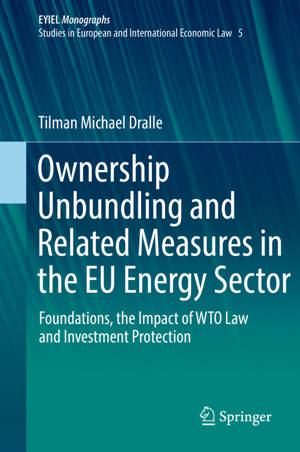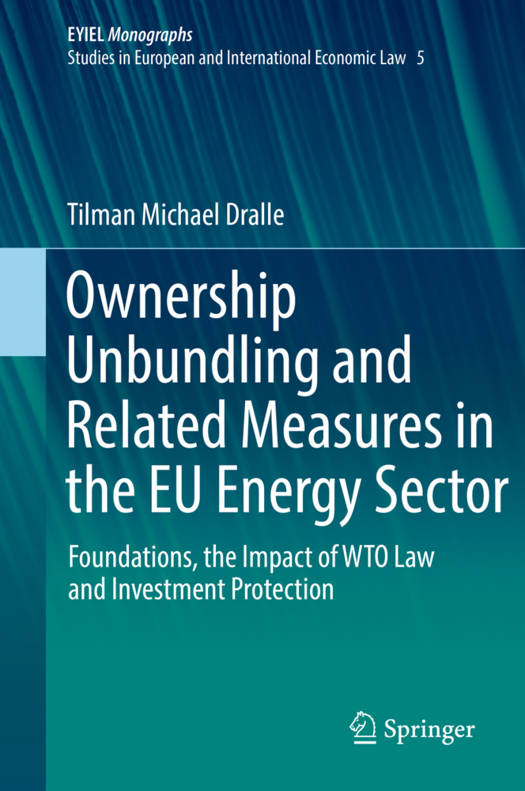
- Afhalen na 1 uur in een winkel met voorraad
- Gratis thuislevering in België vanaf € 30
- Ruim aanbod met 7 miljoen producten
- Afhalen na 1 uur in een winkel met voorraad
- Gratis thuislevering in België vanaf € 30
- Ruim aanbod met 7 miljoen producten
Zoeken
Ownership Unbundling and Related Measures in the EU Energy Sector
Foundations, the Impact of Wto Law and Investment Protection
Tilman Michael Dralle
Hardcover | Engels | European Yearbook of International Economic Law | EYIEL Monographs - Studies in European and International Economic Law | nr. 5
€ 158,45
+ 316 punten
Uitvoering
Omschrijving
This book provides the first comprehensive analysis of unbundling and, in particular, ownership unbundling policies from the perspective of international economic law. It does so by focusing on the prominent example of the EU's energy sector and its Third Energy Package. Unbundling has become an increasingly crucial competition instrument in network-bound industries worldwide. It is designed to ensure access to bottleneck infrastructures on fair and non-discriminatory terms and thus to suppress the anti-competitive potential deriving from vertical integration in natural monopoly situations. While promoting important public policy objectives, unbundling policies have also raised a number of legal issues. This book analyzes how international economic law limits the adoption and maintenance of unbundling and related measures and also outlines how international trade law can play a 'positive' role in this field. As a result, it provides a valuable reference for academics, practitioners and policy-makers.
Specificaties
Betrokkenen
- Auteur(s):
- Uitgeverij:
Inhoud
- Aantal bladzijden:
- 373
- Taal:
- Engels
- Reeks:
- Reeksnummer:
- nr. 5
Eigenschappen
- Productcode (EAN):
- 9783319777962
- Verschijningsdatum:
- 4/05/2018
- Uitvoering:
- Hardcover
- Formaat:
- Genaaid
- Afmetingen:
- 156 mm x 234 mm
- Gewicht:
- 716 g

Alleen bij Standaard Boekhandel
+ 316 punten op je klantenkaart van Standaard Boekhandel
Beoordelingen
We publiceren alleen reviews die voldoen aan de voorwaarden voor reviews. Bekijk onze voorwaarden voor reviews.











